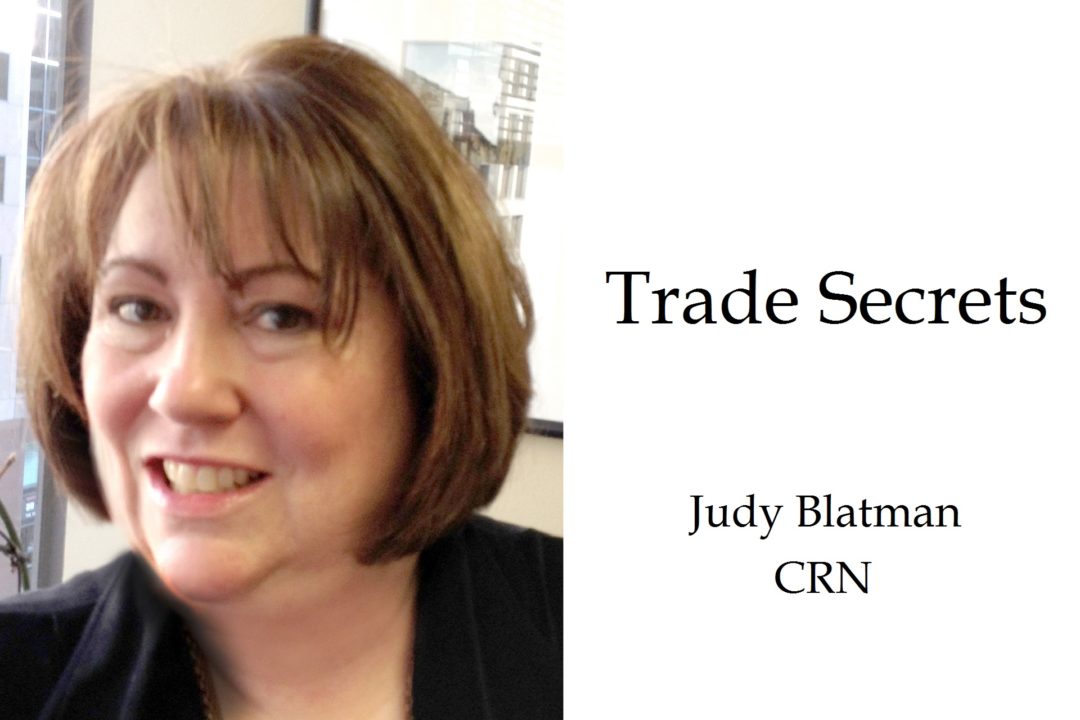We see this kind of impact in the dietary supplement industry, too. Although our annual consumer survey tells us year after year that the most trusted source of information on dietary supplements is from healthcare practitioners, we also believe instinctively that people feel certain supplements are necessary (or, in some cases, unnecessary) because of what they’ve heard over time from family members, friends, or neighbors. This type of dialogue reminds us our industry can thrive on the personal experience and reinforces the fact that word of mouth plays a key role in how we, as consumers, choose to become purchasers.
And it’s that personal, word-of-mouth, rolling impact that makes the blogging community such a powerful medium for our industry. People search for connection, for finding gurus who share similar personal interests and values. More and more of us look to blogs for information—product reviews, home improvement and travel tips, parenting advice—because we want more than just the cold, hard facts. We like the story that goes along with the facts, as it reinforces a feeling of connection to the information we are being fed.
In order for our industry to do the feeding, we need to make those connections. That’s why CRN’s communications staff, along with our head scientist, spent several days in Los Angeles at #BlogHer16, the leading conference for women bloggers. At this three-day gathering of over 3500 bloggers, CRN set up a booth in the exhibit hall and held a special luncheon event in order to initiate this alliance building. Speaking with bloggers of all ages and backgrounds, we heard their stories and answered their questions. In doing so, we demonstrated, on behalf of our member companies, that CRN had a science-based, balanced perspective and was approachable and available to help bloggers supplement their wellness-focused content. And we didn’t do it alone. We invited “Wellness Ambassadors”—respected registered dietitians, sports nutrition experts, and doctors—to serve as resources to bloggers at our booth and beyond. We successfully sought out Vitamin Angels Founder and President Howard Schiffer, himself a powerhouse, to tell the story of the power of vitamins at our special luncheon for thirty bloggers. We made connections with and for people.
Blogging is about creating a domino effect of information. A blogger writes a post about the things she knows and things she needs to do. While pregnant—get plenty of rest, ignore the constant cravings for bacon-flavored ice cream, and remember to take her daily prenatal vitamin. She shares her story with her followers. Of those followers, several will like the story enough to share it on social media. The story then reaches their unique set of followers. The story is shared and shared again, crossing state and country borders, reaching people who have no connection to the original poster. Those posts generate comments, a discussion, and more and more people sharing their stories and experiences. Soon, equipped with powerful, science-based information wrapped in a personalized voice, everyone is sharing their pregnancy advice. CRN’s role: to offer science-based information and interesting story angles.
The fact is that people love a good story. Factoids are tastier when supplemented with a personal anecdote. So often, blogging serves as that spoonful of sugar (that may or may not have been kept in the freezer)—and that sweetness is what triggers the domino effect.
 Judy Blatman is the senior vice president of communications for the Council for Responsible Nutrition (CRN).
Judy Blatman is the senior vice president of communications for the Council for Responsible Nutrition (CRN).NOTE: The opinions expressed in bylined articles are not necessarily those of the publisher.
Posted on WholeFoods Magazine Online, 9/8/2016









